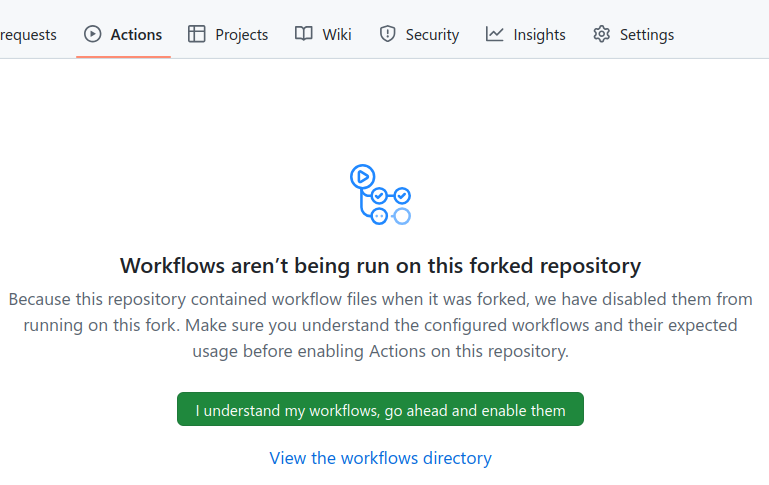Build - Contributing
Contributing updates to Building Blocks
One way to contribute to an already existing Building Blocks register is to fork it on GitHub, apply your own changes to your copy of the register and, when ready, create a Pull Request (PR) so that they can be included in the upstream register.
Creating a fork allows you to work on the master/main branch, which triggers the Building Blocks postprocessing
workflows, so you can preview your version of the register on its own GitHub pages. However,
by default GitHub disables workflows on forked repositories, so you need to manually enable them on the “Actions” tab
of your forked repository.

Merge conflicts
The main downside of working with forks is that the Building Blocks postprocessing workflow generates artifacts
inside the build/ directory of the repository, which can result in
merge conflicts
when the Pull Request is created, making the process more difficult.
To work around this, the following bash script can be used to create a “clean” branch excluding all changes in the
build/ directory, which can then be used to create the Pull Request from (instead of the master/main one):
create-clean-pr.sh
The script is run locally on the directory of the forked register, and it requires that the upstream repository
(i.e., the original Building Blocks register) is
added as a remote.
By default, the fork-parent remote name will be used, but it can be configured to something different (e.g., upstream).
The script will create a new branch with a random name, clean any changes done to the build/ directory and anything in it,
push the branch to your fork of the register, and provide you with a URL to create the Pull Request directly.
It relies on the git-filter-repo Python script, so you must have a working
Python environment for it to work. If git-filter-repo is already installed on your system, the script will use it,
and otherwise will download a copy to a temporary directory (which will be deleted once it is done).